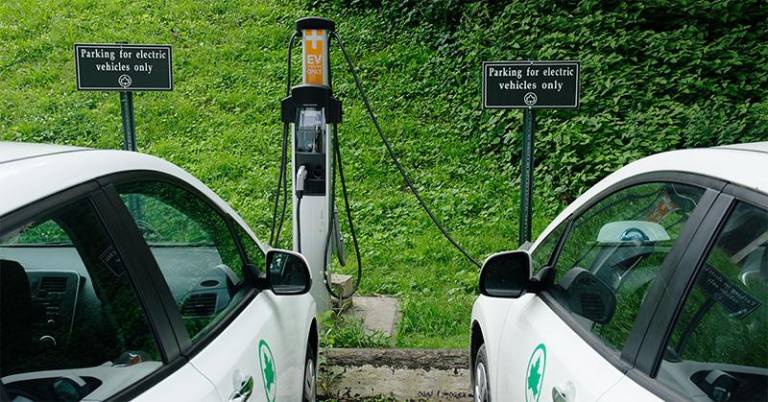New Rules Proposed to Make Rideshare Fleets Zero-Emission by 2030
Mayor Eric Adams and the Taxi & Limousine Commission (TLC) announced the Green Rides Initiative on August 16, which would gradually mandate that rideshare fleets–such as those of Uber or Lyft–use zero-emissions vehicles by the end of the decade.

Companies such as Uber and Lyft will have to fully electrify their fleets in seven years, according to proposed rules introduced Aug. 16 by Mayor Eric Adams and the Taxi & Limousine Commission.
The Green Rides Initiative states that “a transition to EVs [electric vehicles] forms an important part of the City’s efforts to improve air quality. Exposure to fine particulate matter produced by internal combustion engines has been linked to various health issues and can lead to hospital admissions and premature death.”
It’s unsurprising that a zero-emissions vehicle, or ZEV, is described by the initiative as “a vehicle that produces no direct exhaust or tailpipe emissions and includes, but is not limited to, battery electric vehicles and hydrogen fuel-cell electric vehicles.”
The city is relying on forecasts about the EV market to craft its rules, in addition to pointing out consumer incentives linked to the vehicles.
For example, the proposed rules point out New York’s Drive Clean Rebate, which “offers up to $2,000 for new EV purchases.” There is also a $7,500 federal tax credit for EV purchases that was part of 2022’s Inflation Reduction Act. On top of these combined incentives of $9,500, TLC-licensed EVs will “receive a 15 percent discount in charging cost at publicly accessible city-owned charging stations.”
The rules for the clean-energy ride-share mandates rely on assumptions about the continued rapid growth of the EV market, such as that it is “roughly doubling each year.” They also note that by 2026 New York State will begin imposing EV mandates writ large for passenger vehicles, with the aim of one-hundred percent electrification by 2035.
The initiative also works in a prediction based on the average lifespan of a single licensed ride-share vehicle, which is roughly around seven years. Therefore, if current gas ride-share cars in their eighth year phase out of commission over the next few years (referred to as “early retirement” by the proposed rules), a new generation of EVs will be ready to take over the fleet with the prodding of new zero-emissions rules.
Essentially, the mayor and the TLC are hopeful that these prevailing trends can ensure that ride-share fleets electrify by ten to twenty percent each year until 2030.
Ride-share fleets will also need to be entirely composed of wheelchair accessible vehicles (WAVs) by 2030.
“By championing the integration of zero-emission vehicles and wheelchair accessible transportation, we are cutting dirty emissions and guaranteeing equitable transportation opportunities for every New Yorker. Green Rides marks significant progress towards establishing an environmentally conscious for-hire transportation system spanning all five boroughs,” Mayor Adams said of the proposed rules.
“The most exciting aspect of this initiative is that it not only transforms the existing fleet into one that is cleaner and more accessible but also provides a much-needed boost in development of city’s charging infrastructure,” added TLC Chair David Do.
Manhattan Borough President Mark Levine praised the initiative as well, proclaiming that “this change marks a historic leap toward a greener and more equitable city. The tens of thousands of for-hire cars that will transition to zero-emissions vehicles will greatly reduce New York’s daily carbon footprint, and the cars that opt to accommodate wheelchairs will help make transit more accessible citywide.”
Members of the public that want a chance to comment on the proposed rules can attend a virtual hearing at 10 a.m. on September 20, 2023. To be allowed to participate, readers must email the TLC at tlcrules@tlc.nyc.gov or at call them at 212-716-1135 by 5 p.m. on September 19.